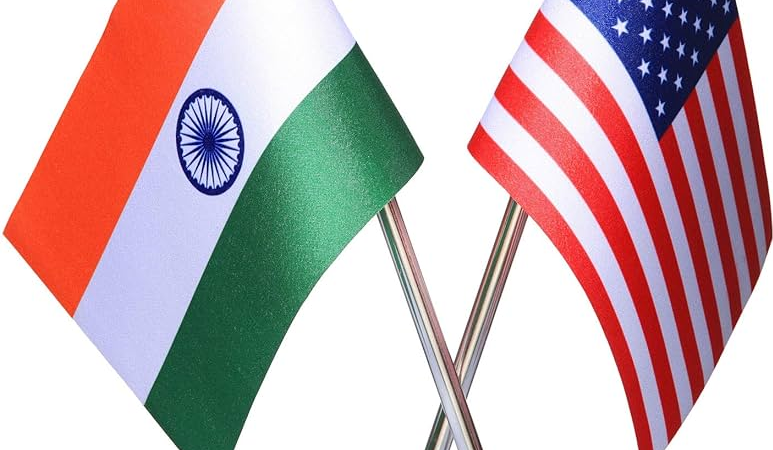
US Officials Speak Up for Khalistani Terrorism
by Rama Rao Malladi & Atul Cowshish*
The US has taken no notice of a video message posted by a key leader of the Khalistan movement, Gurpatwant Singh Pannun. He has threatened to attack Indian parliament on or before December 13, the day in 2001 when Pakistani terrorists had attacked Indian parliament.
A few days ago, Canada -based Sikh separatists issued threats of death and destruction to coincide with the birth anniversary of Indira Gandhi who was gunned down in October 1984 by her Sikh bodyguards influenced by Khalistani ideology.
The video that Pannun released had a chilling message in the backdrop: ‘Delli Banega Khalistan’ (Delhi will become Khalistan).
How? Certainly, not by ‘peaceful’ means.
The Americans and others who pamper the Sikh separatists in the name of ‘freedom of expression’ should know that the overwhelming majority of the Sikhs in India reject the idea of Khalistan and that they have had enough of separatists’ violence which brought the prosperous state of Punjab down to its knees in the 1980s and 1990s.
In fact, the Americans appear to make light of Indian concern over Sikh separatists, while asserting that the Khalistanis operating from their soil and from other western countries pose no threat to India.
Neither Washington nor Ottawa may care to recall, but Delhi should remind them of the Kanishka that disintegrated over the Atlantic Ocean on June 23, 1985.
Before Air India Flight 182, Kanishka, operating on the Montreal–London–Delhi–Bombay route, was blown up mid-air by militant Khalistani separatist group, Babbar Khalsa, the Canadians had received and ignored an intelligence input. This worst air disaster in aviation history killed more than 300 passengers, most of them Indians.

The homilies and sermons from the Americans, Canadians and other western powers deserve to be rejected in strongest possible terms because the messages that the terrorists deliver directly affect the lives and safety of Indians.
The number of Khalistani demonstrators may be small in the western countries but the regularity with which they pop up indicates that there are unseen forces which are constantly egging them on.
It may not be wide off the mark to aver that Pakistan has been actively pump priming the Khalistanis, many of whom are given shelter and training in that country sinking towards hell-hole.
One of the ‘most wanted’ Khalistanis, Lakhbir Singh Rode, died in Rawalpindi a few days back, on Dec 1, 2023 to be precise, after a heart attack. He was a nephew of Jarnail Singh Bhindranwale, the fourteenth Jathedar (leader) of the prominent orthodox Sikh religious institution, Damdami Taksal, and a leading figure of the Khalistan movement.
Rode headed the International Sikh Youth Federation (ISYF), which has branches in Canada and several west European countries, according to Wikipedia. He was affiliated with the Khalistan Zindabad Force (KZF). Known as Lakhbir Singh, Singh Lakhbir Rode, or Singh Lakhbir, he was one of the main organisers of a KZF/ISYF cell at Birganj on the India-Nepal border.
Rode fled India after his uncle, Bhindranwale was killed in an army operation on June 6, 1984. How he was able to escape is perhaps a mystery but he settled his family in Canada and Dubai but preferred to station himself in Pakistan to push arms and ammunition into India. He primarily focused on subversive activities in Punjab.
This quick recap of Rode saga is to put in perspective the Pannun phenomenon and the threats to India.
A succession of US officials has accused India of plotting to kill Pannun, a dual US-Canada citizen, on the American soil. Their contention is that the plot, if successful, would have impinged upon the American sovereignty, and amounted to an unacceptable interference by a foreign government.
The unearthing of the plot was attributed to undercover agents, who are known to have co-opted sections of the Khalistani groups in their bid to break the back of the drug mafia.
So much so, can the tip off from such groups be considered as manna, more so since they could be exploiting India’s discomfiture over the L’affaire Nijjar.
When Khalistani terrorist, Hardeep Singh Nijjar, was killed in Canada also, India has all but been held guilty of a plot to kill certain types of people it considers its enemies in a foreign country
From President Joe Biden downwards, various American leaders, speaking on US soil or on a visit to India, have been speaking in defence of the likes of Gurpatwant Singh Pannun. And are castigating India without any proof for hatching plots to kill US or Canada-based Khalistanis, who, have not been hiding their plan to achieve an ‘independent’ Sikh state carved out of India through violent means.
The latest US official to raise the Pannun issue with New Delhi was the visiting principal deputy security advisor, Jonathan Finer. He met high-ranking security and foreign ministry officials, including external affairs minister, Subrahmanyam Jaishankar.
Rather condescendingly, Finer ‘acknowledged’ during his Delhi visit that India understood the ‘importance’ of holding accountable anyone found responsible for the alleged plot to murder Panun in the US and for this purpose was holding an inquiry.
The Americans have not given the benefit of the doubt on the alleged foiled attempt on Pannun.
Unlike the Canadians in the Nijjar case, the Americans shared the details of their findings with India.
Whether this sudden Panun fixation is part of a larger diplomatic game to fix India or to push a surging India on the defensive, it will do no good to the bilateral relations, no matter what the brouhaha in the media conveys.
The US lawmakers have since held a Congressional hearing “Transnational Repression: A Global Threat to Rights and Security”.
It was a US centric discourse.
Instead, they should have discussed how countries like India view the support the separatist movements receive from ‘friendly’ countries and ‘strategic’ partners.
Reading reports in the American media and listening to US officials, what becomes clear is that there is no appreciation of Indian concerns about the harmful potential of the activities of hate-filled and violence preaching Sikh separatists leading a life of comfort in the West.
Sensitizing the American opinion and policy makers is not an easy job for the Indian diplomacy and political leadership, more so since the US, Canada and the UK are gearing up for vote bank politics.
Nonetheless, India must go ahead and convey plainly not to cross the diplomatic Plimsoll line! (POREG)
*The writers are New Delhi-based journalists and commentators
-
CHINA DIGEST
-
 ChinaChina Digest
China’s PMI falls for 3rd month highlighting challenges world’s second biggest economy faces
ChinaChina Digest
China’s PMI falls for 3rd month highlighting challenges world’s second biggest economy faces
-
 ChinaChina Digest
Xi urges Chinese envoys to create ‘diplomatic iron army’
ChinaChina Digest
Xi urges Chinese envoys to create ‘diplomatic iron army’
-
 ChinaChina Digest
What China’s new defense minister tells us about Xi’s military purge
ChinaChina Digest
What China’s new defense minister tells us about Xi’s military purge
-
 ChinaChina Digest
China removes nine PLA generals from top legislature in sign of wider purge
ChinaChina Digest
China removes nine PLA generals from top legislature in sign of wider purge
-
-
SOUTH ASIAN DIGEST
-
 South Asian Digest
Kataragama Kapuwa’s arrest sparks debate of divine offerings in Sri Lanka
South Asian Digest
Kataragama Kapuwa’s arrest sparks debate of divine offerings in Sri Lanka
-
 South Asian Digest
Nepal: Prime Minister Dahal reassures chief ministers on police adjustment, civil service law
South Asian Digest
Nepal: Prime Minister Dahal reassures chief ministers on police adjustment, civil service law
-
 South Asian Digest
Akhund’s visit to Islamabad may ease tensions on TTP issue
South Asian Digest
Akhund’s visit to Islamabad may ease tensions on TTP issue
-
 South Asian Digest
Pakistan: PTI top tier jolted by rejections ahead of polls
South Asian Digest
Pakistan: PTI top tier jolted by rejections ahead of polls
-






Comments